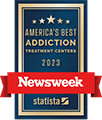It is no exaggeration to note that opioid abuse is a significant problem in North Carolina.
In April, 2016, a report by healthcare information company Castlight Health identified Wilmington, North Carolina, as the worst city in the nation for opioid abuse. The Castlight report, which was based on anonymous data that had been collected from more than one million people over a five-year period, determined that 11.6 percent of adults in Wilmington have engaged in opioid abuse.
Three other North Carolina cities were listed among the 20 worst U.S. cities for opioid abuse. Hickory was number 5 on the list, with an opioid abuse rate of 9.9 percent; Jacksonville was number 12, with an opioid abuse rate of 8.2 percent; and Fayetteville was number 18, with an opioid abuse rate of 7.9 percent.
Castlight Health is not the only organization to note that North Carolina is being plagued by rampant opioid abuse.
About a month before the Castlight Health report was released, CBS North Carolina reported that the annual number of deaths in North Carolina that resulted from heroin overdose had increased by 584 percent, from 2010 to 2014.
In November, Wilmington-area news station WWAY-TV reported that, when all opioids, a category that includes heroin and prescription painkillers, are considered, North Carolina’s overdose rate has increased by 900 percent since 2010.
These, and other reports, have prompted multiple efforts to combat the opioid abuse epidemic in Wilmington and throughout North Carolina. One such initiative is the expanded use of naloxone, a medication that can counteract the effects of opioid overdose. If a person who has overdosed on heroin, a prescription painkiller, or another opioid receives naloxone in time, he or she will immediately go into withdrawal, which can literally be a life-saving experience.
In 2013, North Carolina state law was changed to allow law enforcement personnel, firefighters, and other first responders to administer naloxone to individuals who have overdosed on an opioid. According to the advocacy group NC Harm Reduction Coalition, personnel with 136 North Carolina law enforcement agencies carry naloxone.
In Wilmington, alone, police officers administered naloxone to people who had overdosed on an opioid 36 times between March and November. Thirty of these people immediately went into withdrawal and survived. In the other six attempts, it was determined that the individuals had already died before the naloxone was administered.
The effectiveness of naloxone, and the many lives that have been saved in Wilmington and throughout the state since first responders began carrying it in 2013, has prompted North Carolina to significantly expand access to the medication. In June 2016, North Carolina Gov. Pat McCrory signed legislation allowing any person to purchase naloxone without a prescription.
Of course, naloxone alone will not end North Carolina’s opioid abuse epidemic. The medication can stop a person from dying as a result of an opioid overdose, but it does not alleviate the powerful cravings, loss of control, and other symptoms of heroin addiction or other forms of opioid use disorder.
Naloxone can allow a person who would otherwise have died from an opioid overdose to live another day. But if that person does not get effective professional treatment for his or her addiction and any co-occurring mental health disorders that may have contributed to his or her opioid abuse, he or she will remain in grave danger.
Thankfully, comprehensive care for opioid addiction is available in Wilmington, and long-term recovery is possible. If you or someone that you care about has been struggling with opioid addiction, get the help that you need today, so that you or your loved one can experience many healthier and happier tomorrows.







